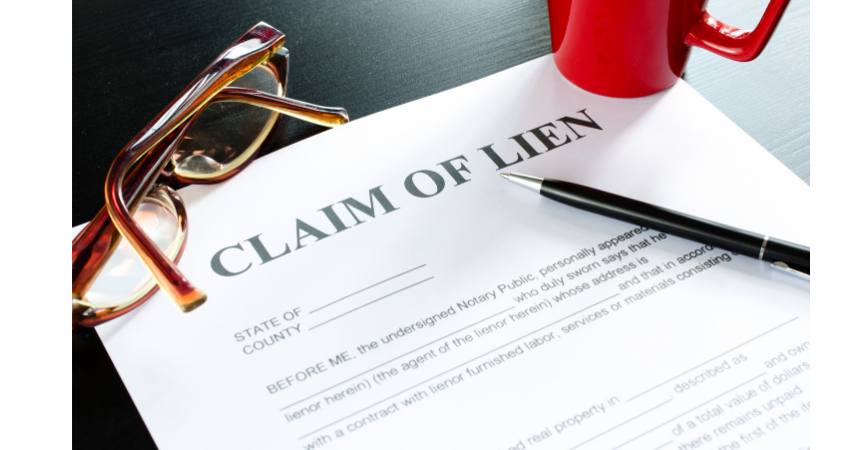A lien is a creditor’s legal right to a debtor’s specific property to satisfy a debt. The most common lien is a home mortgage. The homeowner borrows money from a bank to buy a house and signs a deed of trust which allows the bank to foreclose if the homeowner stops paying the mortgage. Other common liens include car notes (Ford Financial repossess your F-150 if you stop paying), and a notice of tax lien (the IRS gets paid back taxes first from the proceeds of the sale of your house). A creditor who holds a lien is a secured creditor. Secured creditors get paid before anyone else in bankruptcy. What happens with liens in bankruptcy?
House Lien & Bankruptcy
Let’s say you own a house worth $1 million and have a mortgage for $900,000. If you sell the house, the mortgage bank gets paid the first $900,000, and the remaining $100,000 goes to you and your realtor. If you file bankruptcy, the Trustee takes legal possession of the house and could sell it. But he won’t, because the Trustee wouldn’t net enough money (for the unsecured creditors) for a sale to be worthwhile, after paying the realtor’s commission.
However, let’s slightly change the example and say you owe $500,000 on the $1 million house’s mortgage. The Trustee will sell this house, because he stands to collect over $400,000 from its sale.
Tax Lien & Bankruptcy
But let’s add another lien. The IRS files a tax lien against your house for $400,000 because that’s what you owe in back taxes. You might think the outcome would be the same as in the $900,000 mortgage example. However, the debtor is vulnerable to a house sale here. I have seen bankruptcy Trustees call the IRS and ask if it will carve out some of the lien in order to get paid now rather than later.
What this looks like: the IRS agrees to be paid only $250,000 out of its $400,000 lien. Now the numbers look like this:
$1 million – sales proceeds
-$80,000 – costs of sale
-$250,000 – IRS lien
-$500,000 – mortgage
-$100,000 – homestead exemption payable to the debtor
Total left for unsecured creditors: $70,000
Judgment Lien & Bankruptcy
Judgment liens can be avoided, that is, wiped out in bankruptcy. Let’s say that you lost a big court case, and your nemesis won a judgment of $500,000 five years ago. The creditor gets an abstract of judgment from the trial court, and records this with the county recorder. Now there’s a lien against your house for $500,000. When you sell, the mortgage gets paid first, then the judgment lien.
But to the extent the lien impairs your homestead exemption in bankruptcy, it may be avoided. The house doesn’t even need to sell.
The numbers look like this:
$1 million – value of house
-$500,000 – mortgage
-$100,000 – homestead exemption payable to the debtor
At this point, there is $400,000 left in equity. But the judgment creditor has a lien of $500,000 against the house. Because there is only $400,000 of equity left in the house, the debtor may avoid $100,000 of the lien.
Will the bankruptcy Trustee sell this house? Probably not, unless he makes a deal with the lienholder to carve out the lien similar to the deal with IRS we talked about above.
Home Equity Line of Credit & Bankruptcy
Let’s say your house is worth $500,000. You refinanced the house in the heyday of the real estate bubble in 2006, and your first mortgage is for $550,000. You also have a home equity line of credit – a second mortgage – for another $150,000. That second line of credit is secured by nothing. No sale of this house will result in payment of a dime to the second mortgage holder. You can get rid of this lien entirely, but only in a chapter 13 case. You file a plan that declares the debt on the second lien as another unsecured obligation, convince the judge that the value of the house is less than the first mortgage, and once your plan payments are done, you have a judgment from the bankruptcy court that the second lien no longer exists.
If you have complicated property issues and can’t keep up with your payments, call me. I have a lot of experience with liens in bankruptcy in California. I’ll walk you through the issues to determine the best way to solve your problems.
July 27, 2020

